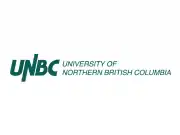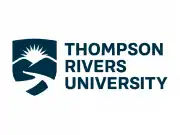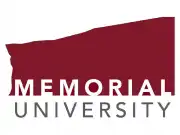Bachelor's programs in Canada for international students
- Advantages of Bachelor's Degree Programs in Canada
- Formats and Levels of Bachelor's Degree Programs in Canada
- Top Universities for Bachelor's Degree Programs in Canada
- How to Apply for Bachelor's Degree Programs in Canada
- Documents Required for Applying to Bachelor's Degree Programs in Canada
- Language of Instruction and Preparation for Applying to Bachelor's Programs in Canada
- Cost of Bachelor's Degree Programs in Canada
- Scholarships and Grants for Bachelor's Degree Programs in Canada
- Career Prospects After Bachelor's Degree Programs in Canada
- Frequently Asked Questions

Bachelor of Science in Nursing - Post-Diploma Baccalaureate Nursing
University of Northern British ColumbiaRegistered nurses who already have an RN diploma from an accredited college or university can enroll in the Post-Diploma Baccalaureate Nursing Program to earn their BScN degrees.
The program is designed to reinforce previously acquired skills and knowledge while also introducing new material…

Bachelor of Social Work - Social Work
University of Northern British ColumbiaStudents pursuing a Bachelor of Social deal (BSW) are trained to deal with clients from many walks of life, including individuals, families, and communities.
Northern and rural communities, Indigenous peoples, women, anti-oppressive practice, and community-based research are all central…

Bachelor of Science
Thompson River UniversityDo you enjoy asking probing questions? Looking for solutions? A Bachelor of Science can help you excel if you are fascinated by the natural world, science, and technology. A BSc is a good starting point for pre-med, graduate studies, or a direct path to a rewarding career. TRU provides early access…

Bachelor - Computing Science
Thompson River UniversityA degree in computer science can pave the way for the widespread use of autonomous vehicles, smart wearable technology, and even holographic surgery.
Opportunities in computing science can be found in a wide variety of fields, including but not limited to healthcare, media, aerospace, sports,…

Bachelor of Arts - Anthropology
Memorial University of NewfoundlandAnthropology is the study of human origins and culture around the world. Anthropologists are interested in how and why human civilizations change, in addition to documenting specific cultures. Students studying anthropology at Memorial University will focus on key concepts, theoretical views, and…

Bachelor of Science - Applied Mathematics
Memorial University of NewfoundlandApplied mathematics combines mathematics with other disciplines such as physics, biology, chemistry, and economics to learn how the world works. It is also a desirable requirement for practically any field of study because it may be used as an incredibly effective instrument for logical thinking instruction.
In…

Bachelor of Arts - Archaeology
Memorial University of NewfoundlandArchaeology is the study of previous human culture through the material that has been left behind, such as physical artefacts, bones, plants, building foundations, and landscapes such as villages.
There are various specialisations within archaeology. Bioarchaeology focuses on how humans…

Bachelor of Science - Behavioural Neuroscience
Memorial University of NewfoundlandThe general study of the relationships between the structure and activity of the brain and its function in creating integrated adaptive behavioural responses is known as behavioural neuroscience. The neuroscience department at Memorial has close ties to the Faculty of Medicine, which is located on…

Bachelor of Science - Biochemistry
Memorial University of NewfoundlandThe study of cell and molecular processes in living organisms is known as biochemistry. It is an interdisciplinary discipline that employs concepts from biology, chemistry, physics, and mathematics to solve life's complicated mysteries. Biochemists investigate how cells reproduce and grow, communicate…

Bachelor of Science - Biology
Memorial University of NewfoundlandThe study of life and living organisms, including their structure, function, growth, origin, evolution, and distribution, is known as biology. Biology is possibly the most closely tied to everyday life of all the disciplines. We are bombarded with news and documentary reports on biological themes…
Advantages of Bachelor's Degree Programs in Canada
Canada is annually included in the list of countries with high-quality higher education and demand for graduates in the international labor market. Here are the main advantages of obtaining a bachelor's degree in Canada for international students:
- Internationally recognized diplomas that open career prospects worldwide;
- Flexible education system and a variety of programs: from humanities to engineering and medical fields;
- High level of safety and comfortable living conditions for students;
- Opportunity to combine studies with legal work during studies;
- Prospect of obtaining a work permit after graduation (Post-Graduation Work Permit);
- Innovative campuses and modern laboratories;
- Integration into a multicultural society and improvement of language skills;
- Possibility of subsequent immigration processing for successful graduates.
Formats and Levels of Bachelor's Degree Programs in Canada
Bachelor's degree programs in Canada are designed for 3-4 years depending on the chosen field and province. The following formats exist:
- Bachelor's Degree — standard bachelor's program (3-4 years);
- Honours Bachelor's Degree — advanced program (4 years), providing an advantage when applying for master's programs;
- Co-op programs — combine studies and paid internships in relevant companies;
- Fast-Track programs — accelerated programs for highly motivated students;
- Joint Programs — collaborative programs between universities and colleges;
- Double Major/Minor — opportunity to study two fields in parallel.
Top Universities for Bachelor's Degree Programs in Canada
| University Name | Bachelor's Program | Cost for International Students (CAD/year) | World Ranking (QS 2024) |
|---|---|---|---|
| University of Toronto | Computer Science, Engineering, Business | 58,160 — 65,250 | 21 |
| University of British Columbia | Economics, Computer Science, Life Sciences | 48,341 — 58,412 | 34 |
| McGill University | Medicine, Law, Arts | 43,827 — 54,000 | 30 |
| University of Alberta | Engineering, Business, Health Sciences | 33,978 — 44,091 | 111 |
| McMaster University | Health Sciences, Business, Engineering | 37,692 — 49,123 | 189 |
| University of Waterloo | Computer Science, Engineering, Math | 45,038 — 57,182 | 112 |
| Western University | Business, Law, Social Sciences | 36,208 — 47,500 | 114 |
| Queen's University | Engineering, Business, Arts | 41,613 — 51,000 | 209 |
| Simon Fraser University | Business, Computing Science, Arts | 32,728 — 44,223 | 318 |
| University of Ottawa | Engineering, Law, Health Sciences | 35,376 — 46,920 | 203 |
How to Apply for Bachelor's Degree Programs in Canada
To apply for a bachelor's degree in Canada, you need to prepare a set of documents in advance and submit an application directly through the university's website or through provincial systems (e.g., OUAC for Ontario).
Application steps:
- Choosing a university and program;
- Checking academic requirements (school certificate or diploma);
- Preparing a language certificate (IELTS, TOEFL, Duolingo);
- Gathering supporting documents: motivation letter, recommendations;
- Submitting the application and paying the registration fee;
- Receiving admission results and applying for a student visa.
Important: In some Canadian provinces, it is possible to apply for a bachelor's degree directly after graduating from school or college in CIS countries, including Russia, Belarus, Kazakhstan, Uzbekistan, and others.
Provinces most favorable to secondary education certificates from CIS countries:
- Ontario (University of Toronto, University of Waterloo, Western University, York University, etc.);
- British Columbia (University of British Columbia, Simon Fraser University, etc.);
- Alberta (University of Alberta, University of Calgary, etc.).
In these provinces, admission is allowed:
- directly with a full secondary education certificate from CIS countries;
- after graduating from college (with a vocational education diploma);
- after 1 year of study at a university in the home country — this is especially encouraged for technical and medical specialties and increases chances of admission to top universities.
If the certificate or diploma was obtained outside the CIS, or if the student does not meet the academic requirements, it is recommended to complete preparatory programs: Foundation, International Year One, or language courses.
Documents Required for Applying to Bachelor's Degree Programs in Canada
Standard list of documents:
- Full secondary education certificate or college diploma;
- Transcript of grades for the last 2-3 years;
- Language proficiency certificate (IELTS Academic 6.0-6.5 or higher, TOEFL from 80 points);
- Passport with sufficient validity period;
- Motivation letter or essay;
- Recommendation letters (if required);
- Portfolio (for creative fields);
- SAT/ACT exam results (if required);
- Proof of financial solvency.
Language of Instruction and Preparation for Applying to Bachelor's Programs in Canada
Bachelor's degree programs in Canada are conducted in English and French, depending on the province.
Preparatory programs:
- Foundation Program — academic preparation for adapting to the Canadian system;
- International Year One — first year of bachelor's studies with adaptation;
- ESL/English Pathway — English language courses to achieve the required level.
Cost of Bachelor's Degree Programs in Canada
Cost range:
- Humanities specialties: from 28,000 to 45,000 CAD/year;
- Technical, engineering, and IT fields: from 35,000 to 60,000 CAD/year;
- Medical and healthcare fields: from 45,000 to 70,000 CAD/year.
Additional expenses:
- Accommodation: 10,000 — 15,000 CAD/year;
- Food and transportation: 4,000 — 7,000 CAD/year;
- Health insurance: about 800 — 1,200 CAD/year.
The minimum amount required for a Study Permit visa is 20,635 CAD for the first year of living, plus tuition fees.
Scholarships and Grants for Bachelor's Degree Programs in Canada
Examples of scholarships:
- Lester B. Pearson International Scholarship — for talented international students at the University of Toronto. Full coverage of tuition and living expenses. Deadline: January;
- UBC International Scholars Program — funding for the entire study period. Deadline: January;
- McGill Entrance Scholarships — for high achievers. Amount: up to 12,000 CAD;
- University of Waterloo International Scholarships — from 2,000 to 10,000 CAD.
Criteria: high academic scores, leadership qualities, participation in social projects.
Career Prospects After Bachelor's Degree Programs in Canada
Popular employment fields for graduates:
- IT and engineering;
- Business and finance;
- Medicine and pharmaceuticals;
- Social sciences and public administration.
Major employers:
- Shopify;
- RBC;
- Google Canada;
- Bombardier;
- Siemens Canada.
Graduates are eligible for a Post-Graduation Work Permit (up to 3 years), allowing them to gain experience and apply for permanent residence.
Continuing education in a master's program after a bachelor's degree significantly increases job prospects and expands career opportunities.
Frequently Asked Questions
1. What are the English language requirements for applying to a bachelor's degree in Canada?
For admission, an IELTS Academic certificate (minimum 6.0-6.5), TOEFL iBT (from 80 points), or an equivalent test is required. The level depends on the university and program.
2. Can international students work while studying for a bachelor's degree in Canada?
Yes, international students in bachelor's programs can work up to 20 hours per week during the academic semester and full-time during holidays.
3. What documents are needed to apply for a bachelor's degree in Canada right after school?
You must provide a school certificate, transcript of grades, language certificate, passport, motivation letter, and recommendations (if required).
4. Do I need to take SAT or ACT exams to apply for a bachelor's degree in Canada?
Requirements vary by university and program. Some top universities require SAT/ACT, especially for engineering and business programs.
5. Is there an opportunity to receive scholarships or grants for bachelor's degree programs in Canada?
Yes, many universities offer scholarships based on academic performance, leadership qualities, and participation in social projects.
6. Which bachelor's degree specialties in Canada are most in demand for international students?
The most in-demand fields are IT, engineering, finance, medicine, biotechnology, and data analytics.
7. What are the employment prospects after completing a bachelor's degree in Canada for international students?
After a bachelor's degree, you can obtain a Post-Graduation Work Permit and work in Canada for up to 3 years, increasing chances for further immigration.
8. What preparatory programs exist for applying to bachelor's degrees in Canada?
There are Foundation Program, International Year One, and English language courses for adaptation and meeting language requirements.
9. Can I continue to a master's program after a bachelor's degree in Canada?
Yes, bachelor's graduates can apply for master's programs, which enhances career prospects and chances of obtaining high-paying jobs.
10. How much money do I need to have in my account to apply for a visa for a bachelor's degree in Canada?
You must confirm a minimum of approximately 20,635 CAD for living expenses plus the first year's tuition fees.